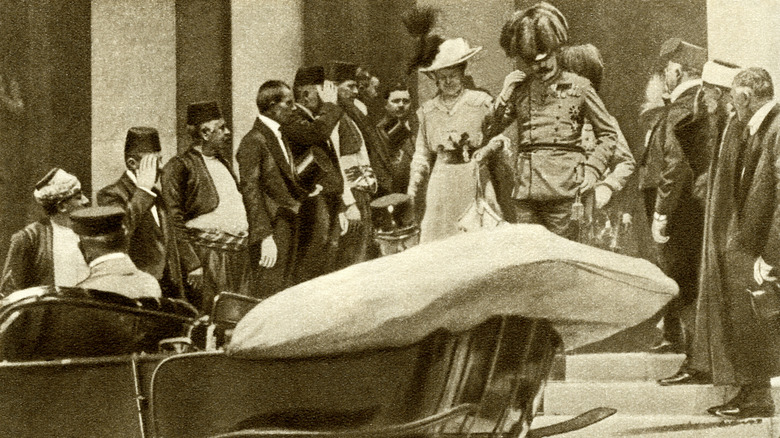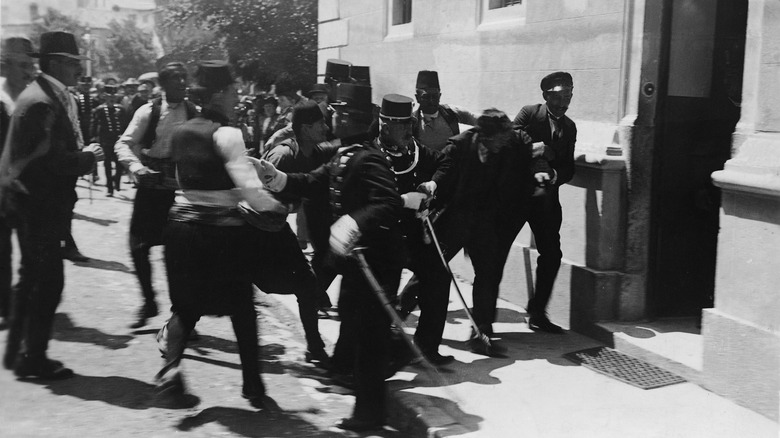What Really Happened After Archduke Franz Ferdinand Died?
The end of World War I led to a drastic reorganization of Europe. The multi-ethnic Austro-Hungarian Empire was perhaps the most affected of the defeated Central Powers, split up into the predecessors of today's Balkan nations. The Ottoman Empire was similarly carved by Britain and France into shapes that would maximize the extraction of the region's resources (via BBC). Germany suffered the least in terms of lost territory, but from the armistice onward, it was painted as the unmistakable villain of the war and was consequently expected to pay enormous reparations to the Allies.
Yet, at the same time, it is known that Germany did not start the war, as it was not until the assassination of Archduke Franz Ferdinand that conflict arose. While most of Europe's major powers had already been preparing for war in some capacity (such as Germany with its Schlieffen Plan), blame for World War I in many ways falls on Austria-Hungary and how they reacted to the assassination.
Austria-Hungary went out of its way to go to war
From the perspective of the Habsburg dynasty, Franz Ferdinand was more or less a legal dead-end in terms of the family's lineage. As his wife Sophie was not of sufficient nobility to be a viable royal spouse, Ferdinand was forced to disinherit his children from any right to succession to marry her. Despite this (and insistence from contemporary outlets like The Guardian that nobody in Austria cared), his assassination sparked outrage amongst the populace. After the arrest (pictured above) of his Serbian assassin, Gavrilo Princip, the government sent a list of demands to Serbia that were to be addressed in 48 hours lest war be declared (via History).
Though the role of the Serbian government in the assassination is still debated, they proposed a compromise in which most of the terms would be accepted — with the exception of those which violated their sovereignty. This diplomatic approach was shot down as a de-facto refusal and subsequently used as justification by Vienna to declare war (via Imperial War Museums).

